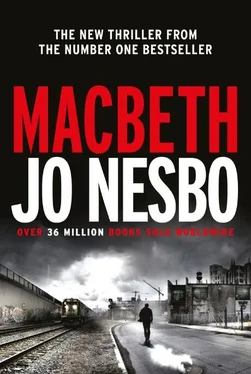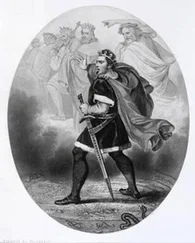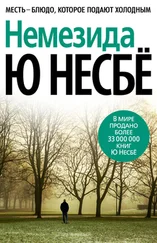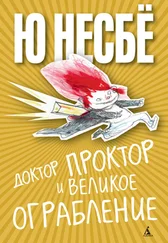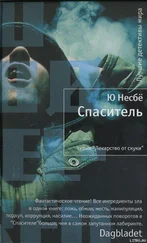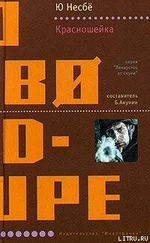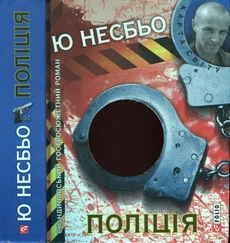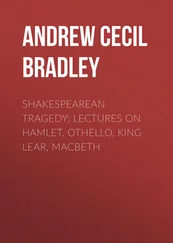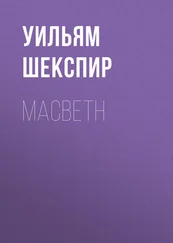Wasn’t that so? Yes, it was. It was, it was.
Twelve o’clock.
Macbeth closed his eyes. He had to get into the zone. He counted down from ten. Opened his eyes. Swore, closed them again and counted down from ten again. Looked at his watch. Grabbed the daggers, stuffed them in the especially made shoulder holster with sheaths for two knives, one on each side. Then he went into the corridor. Passed the bodyguards’ door and stopped outside Duncan’s. Listened. Nothing. He drew a deep breath. Evaluations of a variety of scenarios had been done beforehand; the only thing left was the act itself. He inserted the master key into the lock, saw his reflection in the shiny door knob of polished brass, then gripped it and turned. Observed what he could in the corridor light, then he was inside and had closed the door behind him.
He held his breath in the darkness and listened to Duncan’s breathing.
Calm, even.
Like Lorreal’s. The director of the orphanage.
No, don’t let that thought out now.
Duncan’s breathing told him he was in bed and asleep. Macbeth went to the bathroom door, switched on the light inside and left the door slightly ajar. Enough light for what he was going to do.
What he was going to do.
He stood beside the bed and looked down at the unsuspecting sleeping man. Then he straightened up. What an irony. He raised a dagger. Killing a defenceless man — could anything be easier? The decision had been taken, now all he had to do was carry it out. And hadn’t he already killed his first defenceless victim on the road to Forres, wasn’t his virginity already gone, hadn’t he paid his debt to Duff there and then, paid him back in the same currency Duff had run it up: cold blood. Seen Lorreal’s hot blood streaming onto the white sheet, the blood that had looked black in the darkness. So what was stopping him now? How was this conspiracy different from when he and Duff had changed the crime scene so that all the evidence found in Forres would tally with the story they agreed they would tell? And the story at the orphanage they agreed they would tell . And sometimes cruelty is on the side of the good, Macbeth. He looked up from the blade glinting in the light from the bathroom.
He lowered the dagger.
He didn’t have it in him.
But he had to do it. He had to . He had to have it in him. But what could he do if he wasn’t up to it even in the zone?
He had to become the other Macbeth, the one he had buried so deep, the crazy flesh-eating corpse he had sworn he would never be again.
Banquo stared at the big, lifeless locomotive as he unbuttoned his flies. He swayed in the wind. He was a bit drunk, he knew that.
‘Come on, Dad,’ came Fleance’s voice from behind him.
‘What’s the time, son?’
‘I don’t know, but the moon’s up.’
‘Then it’s past twelve. There’s a storm forecast tonight.’ The gun holster hanging between the first and second loops on his belt was in his way. He unhooked it and passed it to Fleance.
His son took it with a resigned groan. ‘Dad, this is a public place. You can’t—’
‘It’s a public urinal, that’s what it is,’ Banquo slurred and at that moment registered a black-clad figure coming round the steam engine. ‘Give me the gun, Fleance!’
The light fell on the man’s face.
‘Oh, it’s just you.’
‘Ah, it’s you, is it?’ Macbeth said. ‘I was out for some air.’
‘And I just had to air the old fella,’ Banquo slurred. ‘No, I wasn’t about to piss on Bertha. After all, that would be — now they’ve closed St Joseph’s Church — desecrating the last holy thing in this town.’
‘Yes, maybe.’
‘Is there anything up?’ Banquo said, trying to relax. He always found it difficult to get going with strangers nearby, but Macbeth and his son?
‘No,’ Macbeth said in a strangely neutral tone.
‘I dreamed about the three sisters last night,’ Banquo said. ‘We haven’t talked about it, but they got their prophecies spot on, didn’t they. Or what do you reckon?’
‘Oh, I’d forgotten them. Lets’s talk about it another time.’
‘Whenever,’ Banquo said, sensing the flow coming.
‘Well,’ Macbeth said. ‘Actually I was going to ask you — now you’re my deputy in Organised Crime — but suppose something like that did happen, just as the sisters said it would?’
‘Yes?’ Banquo groaned. He had lost patience, started forcing it, and with that the flow stopped.
‘I’d appreciate it if you joined me then too.’
‘Become your deputy CC? Ha ha, yes, pull the other one.’ Banquo suddenly realised that Macbeth wasn’t joking. ‘Of course, my boy, of course. You know I’m always willing to follow anyone who’ll fight the good fight.’
They looked at each other. And then, as if a magic wand had been waved, it came. Banquo looked down, and there was a majestic golden jet splashing intrepidly over the locomotive’s large rear wheel and running down onto the rail beneath.
‘Goodnight, Banquo. Goodnight, Fleance.’
‘Goodnight, Macbeth,’ answered father and son in unison.
‘Was Uncle Mac drunk?’ Fleance asked when Macbeth had gone.
‘Drunk? You know he doesn’t drink.’
‘Yes, I know, but he was so strange.’
‘Strange?’ Banquo grinned grimly as he watched the continuous stream with satisfaction. ‘Believe me, that boy isn’t strange when he gets high.’
‘What is he then?’
‘He goes crazy.’
The jet was suddenly swept to the side by a strong gust of wind.
‘The storm,’ Banquo said, buttoning up.
Macbeth went for a walk around the central station. When he came back Banquo and Fleance had gone, and he went into the large waiting room.
He scanned the room and instantly sorted the individuals there into the four relevant categories: those who sold, those who used, those who did both and those who needed somewhere to sleep, shelter from the rain and would soon be joining one of the first three. That was the path he himself had followed. From orphanage escapee receiving food and drink from officers of the Salvation Army to user who financed dope and food by selling.
Macbeth went over to an older, plump man in a wheelchair.
‘A quarter of brew,’ he said, and just the sound of the words made something that had been hibernating in his body wake up.
The man in the wheelchair looked up. ‘Macbeth,’ he said, spitting the name out in a shower of saliva. ‘I remember you and you remember me. You’re a policeman, and I don’t sell dope, OK? So get the hell away from me.’
Macbeth walked on to the next dealer, a man in a checked shirt who was so hyped up he couldn’t stand still.
‘Do you think I’m an idiot?’ he shouted. ‘I am by the way. Otherwise I wouldn’t be here, would I. But selling to a cop and ending up in clink for twenty-four hours when you know you can’t go four hours without a fix?’ He leaned back, and his laughter echoed beneath the ceiling. Macbeth went further in, along the corridor to the departures hall, and heard the dealer’s cry resound behind him: ‘Undercover cop coming, folks!’
‘Hi, Macbeth,’ came a thin, weak voice.
Macbeth turned. It was the young boy with the eyepatch. Macbeth went over to him and crouched down by the wall. The black patch had ridden up, allowing Macbeth to see inside the cavity’s mysterious darkness.
‘I need a quarter of brew,’ Macbeth said. ‘Can you help me?’
‘No,’ said the boy. ‘I can’t help anyone. Can you help me?’
Macbeth recognised something in his expression. It was like looking into a mirror. What the hell was he actually doing? He had, with the help of good people, managed to get away, and now he was back to this? To perform an act of villainy even the most desperate drug addict would shy away from? He could still refuse. He could take this boy with him to the Inverness. Give him food, a shower and a bed. Tonight could be very different from the way he had planned it, there was still that possibility. The possibility of saving himself. The boy. Duncan. Lady.
Читать дальше
